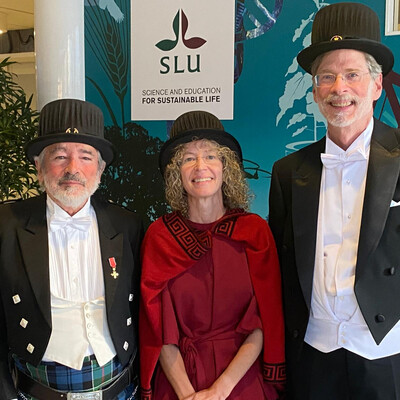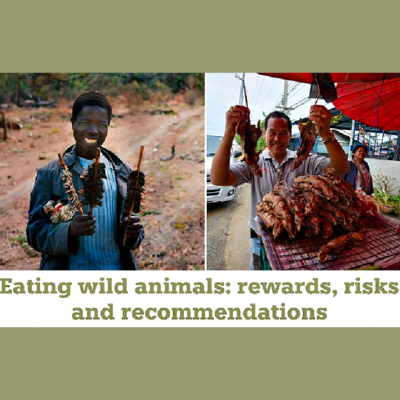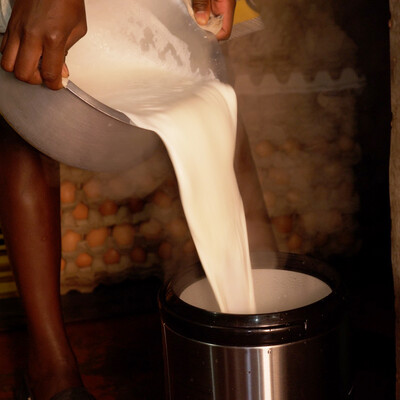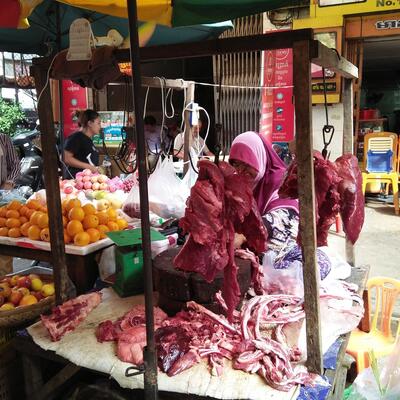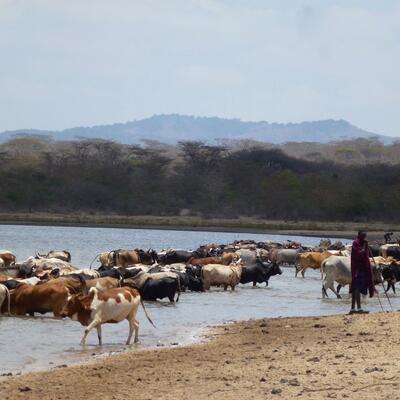

Ethiopia strides towards One Health with launch of integrated food safety technical working group
ILRI News
Posted on
by
- Steven Lam
- Kebede Amenu
- Hung Nguyen-Viet
- Silvia Alonso Alvarez
- Behaile Goshime
Contributors
Foodborne diseases are a significant problem in low- and middle-income countries, especially in Africa.
Recent evidence from research shows that in Ethiopia, the average economic costs related to foodborne disease caused by non-typhoidal Salmonella enterica, Campylobacter and enterotoxigenic Escherichia coli in 2017 were estimated at 723 million international dollars, representing 0.9% of gross national income.
This public health and financial burden, which accounts for only a subset of meat products and foodborne germs, underscores the urgent need to address food safety through a comprehensive One Health approach.
The launch of an integrated One Health–food safety technical working group in Ethiopia during a food safety conference held on 26–27 October 2023 in Addis Ababa marked a crucial milestone in the country’s journey towards putting One Health into practice in the management of food safety.
The working group will foster multi-sector coordination aimed at strengthening national food safety systems and reducing the burden of foodborne diseases.
It will also serve as a platform to share information, collaborate and develop policy advice in matters related to food safety in the country.
The working group is supported by the CGIAR Initiatives on One Health and Resilient Cities.
Ethiopia’s national One Health steering committee established the working group and convened the group’s first meeting on 30 October 2023.
Present were representatives from the human health, animal health, food, trade, drug, agriculture, wildlife, water and energy sectors.
Feyesa Regassa, chair of the Ethiopia national One Health steering committee, kicked off the event with a keynote address in which he emphasized the important role of different ministries in ensuring food safety and stressed the importance of collaborative platforms to streamline initiatives.
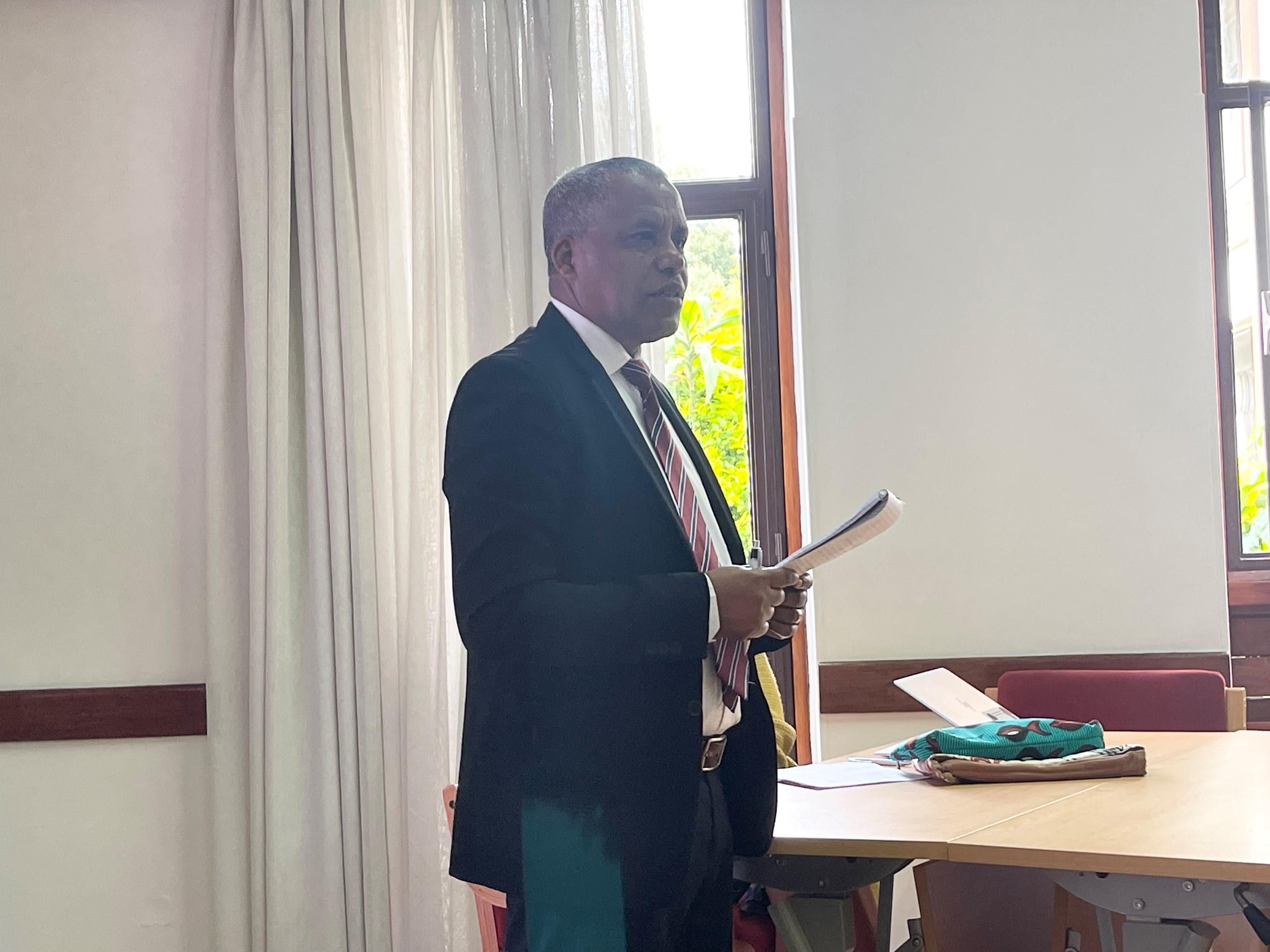
Behailu Goshime, co-chair of the Ethiopia national One Health steering committee, introduced the draft terms of reference and facilitated discussions on the way forward.
Key activities of the working group will include
- Coordination: Creation of opportunities for institutions working on food safety projects in the country to share information on activities, findings, and priorities;
- Policy: Coordination of efforts to advise the government and other institutions on evidence-based recommendations to update existing food safety legislation; and
- Communication: Supporting the development of communication plans by the government and other stakeholders to promote good hygienic practices and food safety among value chain actors.
The Ethiopia national One Health steering committee currently hosts several specific One Health technical working groups on rabies, anthrax, brucellosis, emerging pandemic threats, antimicrobial resistance and One Health communication.
Drawing insights from experiences in Vietnam, Hung Nguyen-Viet, co-leader of the Animal and Human Health program at the International Livestock Research Institute and leader of CGIAR Initiative on One Health, shared the journey of the Vietnam food safety technical working group, highlighting its shift from a research-focused group of 10 members to a dynamic, multi-sectoral body of 60 members integrated into the national One Health framework.
Recognising the value of early integration into national One Health mechanisms, the Ethiopia food safety technical working group will leverage insights from this journey by ensuring the group's integration from the outset.
Tackling the food safety challenge at the national level demands reduced fragmentation and nurtured collaborations across multiple sectors.
With an inclusive One Health strategy, the One Health–food safety technical working group will be well positioned to make significant strides forward in coordinating food safety initiatives throughout Ethiopia.
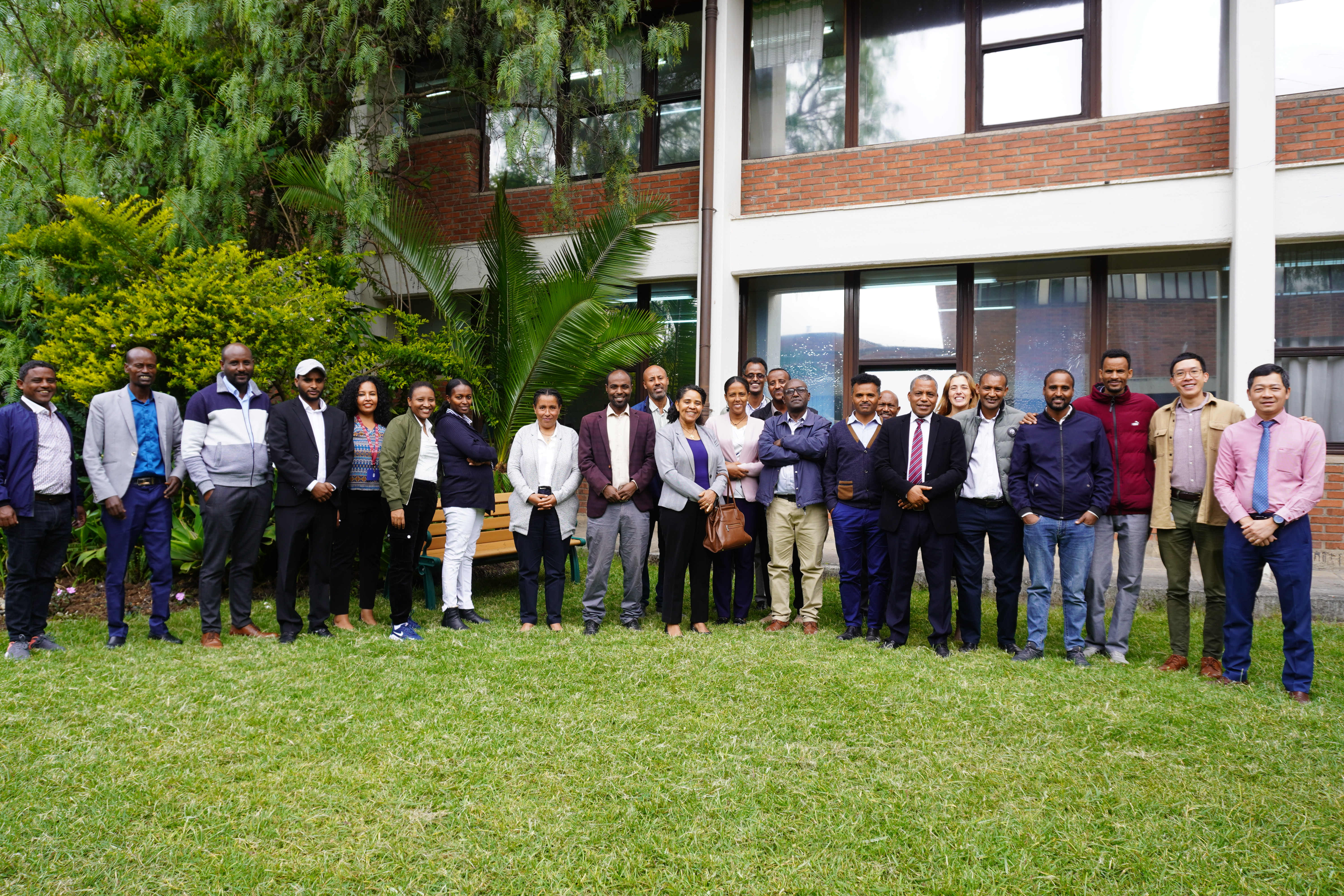
Header photo: Vegetable market in Ethiopia (photo credit: East African Policy Research Institute/Birhanu Lenjiso)
You may also like

ILRI News
ILRI’s contribution to climate-resilient agriculture conference in Bhutan: A path towards sustainable livestock systems
ILRI News
Four-year initiative launched to improve milk quality, safety and marketing in central and western Kenya
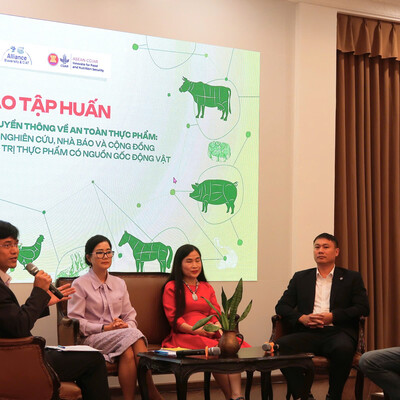
ILRI News
Enhancing communication on food safety: strengthening the connection between researchers, journalists, and communities
ILRI News
ILRI highlights One Health and climate-smart livestock systems at the 3rd GMS Agriculture Ministers' Meeting in Kunming, China
Related Publications
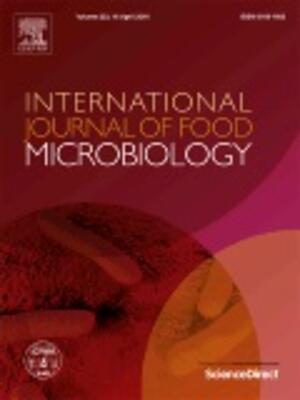
Cost-effectiveness of interventions toward improving microbial food safety of chicken meat along supply chains in Burkina Faso and Ethiopia
- Ssemanda, J.N.
- Besten, H.M.W. den
- Dione, Michel M.
- Amenu, Kebede
- Knight-Jones, Theodore J.D.
- Zwietering, M.H.
- Wagenberg, C.P.A. van
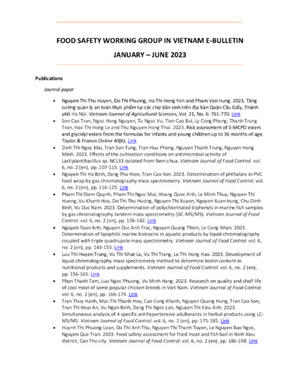
Food Safety Technical Working Group in Vietnam E-bulletin, July-December 2024
- Food Safety Technical Working Group in Vietnam
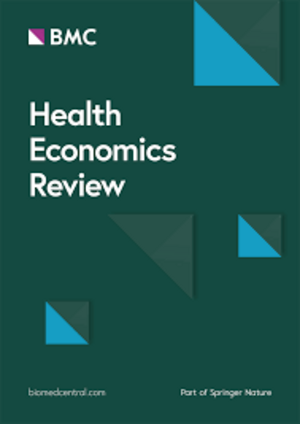
The heterogeneous association between education and the adoption of safe food handling practices in Ethiopia
- Su, K.
- Kowalcyk, B.
- LaPolt, D.
- Gazu, Lina
- Alonso, Silvia
- Azmeraye, B.M.
- Degefaw, D.
- Mamo, G.
- Angaw, D.A.
- Teshale, A.M.
- Scharff, R.

Systematic review and meta-analysis on prevalence and antimicrobial resistance patterns of important foodborne pathogens isolated from retail chicken meat and associated environments in India
- Ayoub, H.
- Kumar, M.S.
- Dubal, Z.B.
- Bhilegaonkar, K.N.
- Hung Nguyen-Viet
- Grace, Delia
- Thapliyal, S.
- Sanjumon, E.S.
- Sneha, E.N.P.
- Premkumar, D.
- Rajendran, V.K.O.
- Deka, Ram Pratim
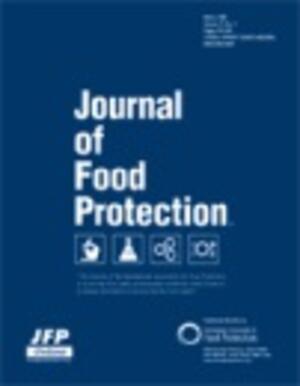
The impact of training intervention on levels of indicator bacteria and prevalence of selected pathogens in raw milk from smallholder women dairy farmers in Central Ethiopia
- Beyene, A.M.
- Nigatu, S.
- Archila-Godinez, J.C.
- Amenu, Kebede
- Kowalcyk, B.
- Degefaw, D.
- Mogess, B.
- Gelaw, B.
- Gizachew, M.
- Mengistu, A.
- Abdelhamid, A.G.
- Barkley, J.
- Yousef, A.






